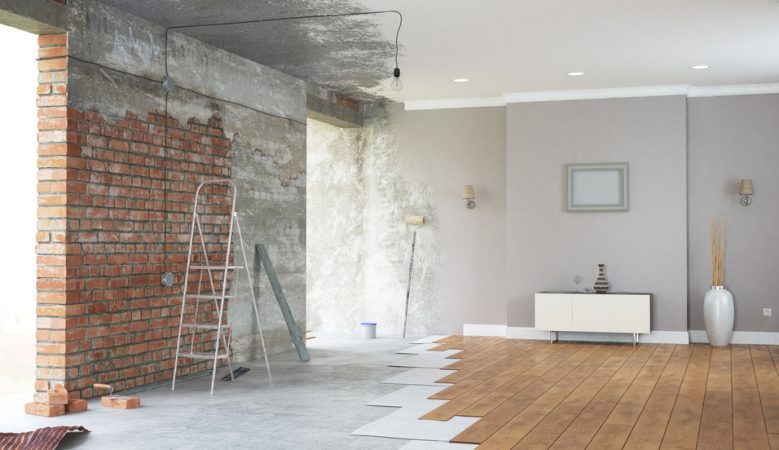
Research suggests almost two-thirds (65%) of homeowners renovated their homes in lockdown – spending an average of £55billion.
Whether you’re renovating your home or ‘flipping’ a property to create an additional income stream, you might be wondering where it’s safe to save a few pounds – and where it’s worth investing.
To help, Scott Hendry, Director of Auction Relationships at specialist lender Together offers top tips to help you make the right call:
1. Get the basics right
Having to make repairs down the line can be an expensive, messy and dispiriting business. So, before you start in earnest on introducing new finishes and floorings, make sure the electrics, plumbing, windows and roof are up to scratch – there’s nothing worse than seeing your hard work undone by a leak or urgent wiring repairs. Even if you’re planning to sell the property on, your buyer’s survey will pick up on issues – so head those off at the pass, and you might secure a better purchase price.
2. Invest in touchpoints
Cheap items can wear out quickly, so spend good money on things you touch and interact with (like light switches, door handles and taps) and scrimp on things you only look at, like paint, wallpaper and wall tiles. Additionally, you might be interested in eco-material. For example, new technology using aerogel and mineral material can now be utilized in effectively insulating your home while being mindful of the saving energy and the climate crisis.
3. Make a plan and stick to it
One sure-fire way to burn through your budget is to change your mind mid-renovation. Decide what you want to achieve before you get started and see it through. Rethinking things like taps and wallpaper isn’t the end of the world but when it comes to the layout of kitchens and bathrooms – with all the associated plumbing and electrics – it’s a case of ‘measure twice, cut once’.
4. Repair, refresh, recycle
Whether it’s soft furnishings or appliances, a good clean may be all that’s needed to return something to its former glory. Other items can be given a new lease of life cheaply. For example, replacing a kitchen can cost thousands, and cupboard carcasses can make up a large chunk of the cost. If you’re happy with your kitchen’s current layout, retain the carcasses and simply replace the doors and work surfaces to give your kitchen an entirely new look.
5. Shop around for professionals
Prices can vary wildly from tradesperson to tradesperson, and just because one company has a slick brochure and fast-talking sales reps, doesn’t automatically mean they’ll do a better job than a ‘one-man band’. To make sure you’re getting the best person for the job, ensure you get three different quotes, get a recommendation from a trusted source and most importantly agree exactly what you’ll be getting for your money ahead of time.